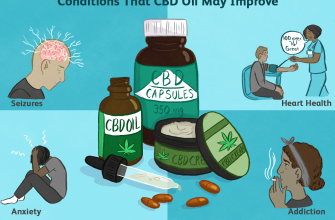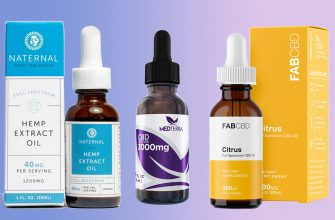Are there medicines that can completely replace cannabis? Both scientists and the public continue to find more and more medicinal properties. More and more people are turning to cannabis for help. It can relieve pain, anxiety and depression.
A 2017 study published in The Journal of Pain Research found that 46% of participants use cannabis instead of prescribed medications. And there are many more of these medicines that can be replaced by cannabis.
Maybe it’s finally time for an uprising against the pharmaceutical companies? Of course, because of the problems associated with the complexities of the legal use of cannabis, it is difficult to talk about it. But when we consider the risks of drug addiction, medicinal cannabis looks like the best option.
1. Opiate analgesics – Vicodin, Percocet or Oxycodone
According to the Journal of Pain Research, opioids are the largest group of drugs that cannabis can replace (35.8%). It doesn’t matter if we are talking about Roxicet, Percocet or Vicodin – they are all opiates that soothe acute or chronic pain. Unfortunately, overdose of these drugs is common these days, but there are people who are looking for an alternative solution – cannabis.
According to data published in The Journal of Pain, patients suffering from chronic pain report reduced discomfort and improved quality of life after a year of cannabis use. In addition, there are claims that cannabis does not increase the risk of serious side effects.
2. Benzodiazepines like Alprazolam
Alprazolam (Amer. Xanax) is the best known prescribed psychiatric drug in the United States. At the same time, it is highly addictive. Some varieties of cannabis treatments can help alleviate panic attacks and anxiety, as was published in a study by Vanderbilt University. Humans have their own endocannabinoid system that regulates anxiety, and when the body receives a certain amount of cannabinoids, feelings of anxiety are greatly reduced.
3. Zolpidem – a sedative for sleep problems
For those who suffer from incurable insomnia or sleep apnea, cannabis can be a release and a welcome relief. A study published in the professional journal Frontiers in Psychiatry indicated that Tetra Hydro Cannabinol stabilizes autonomic output during sleep, relieves symptoms of spontaneous breathing difficulties, and blocks the worsening of serotonin-induced sleep apnea.
4. Antidepressants like Zoloft
Researchers at the University of Buffalo Research Institute (RIA) studied chronic stress and depression, and found that cannabis can help alleviate depression that starts with chronic stress. Samir Khaj-Dahman, RIA Senior Research Fellow, PhD, said: “Using a substance derived from hemp – marijuana – to restore normal endocannabinoid function and could potentially help stabilize mood and alleviate depression.”
5. Methylphenidates – Adderall or Ritalin
These pharmaceutical stimulants are used to treat a condition commonly referred to as hyperactivity or attention deficit disorder. When German scientists studied 30 ADHD patients not helped by Adderall or Ritalin, they found that after using medicinal cannabis, all 30 patients reported “improved focus and sleep” and “reduced impulsivity.” In adult patients who do not respond to standard treatment, cannabis can be a great alternative.
6. Anti-inflammatory drugs like Ibuprofen
A study published in the professional journal Future Medicinal Chemistry, which explores the potential of cannabinol as a new class of anti-inflammatory substances against many inflammations and autoimmune diseases. The result was to learn that, in general, cannabinoids show significant potential for use as a new, anti-inflammatory drug without psychotropic side effects.
7. Alzheimer’s disease
For patients in the later stages of Alzheimer’s, the good news is that it looks like cannabis can help ease their anxiety. Symptoms such as irritability and aggressiveness could theoretically be suppressed by cannabis and its ingredients, according to the Alzheimer’s Society. Some studies have shown that the use of cannabis or cannabinol may also help treat some of the behavioral symptoms of dementia, although more research is needed for this.
8. Medicines for Glaucoma
Studies conducted in the 70s showed that smoking marijuana relieves difficulties in patients suffering from glaucoma. While it is true that cannabis increases intraocular pressure by about 25 percent, this effect only lasts an hour. Therefore, substitution of cannabis preparations is still considered dangerous and is not recommended by the AAO.
Sources:
www.jpain.org/article/S1526-5900(15)00837-8/pdf
https://news.vanderbilt.edu/2014/03/06/discovery-sheds-new-light-on-marijuana-anxiety-relief-effects/
https://www.frontiersin.org/articles/10.3389/fpsyt.2013.00001/full
http://www.buffalo.edu/news/releases/2015/02/004.html
http://cannabis-med.org/nis/data/file/abstractbook.pdf
https://www.ncbi.nlm.nih.gov/pmc/articles/PMC2828614/
https://www.aao.org/eye-health/tips-prevention/medical-marijuana-glaucoma-treament
https://www.eurekalert.org/pub_releases/2016-07/uog-nbs070516.php
https://www.alzheimers.org.uk/info/20074/alternative_therapies/488/cannabis_for_the_treatment_or_prevention_of_dementia





